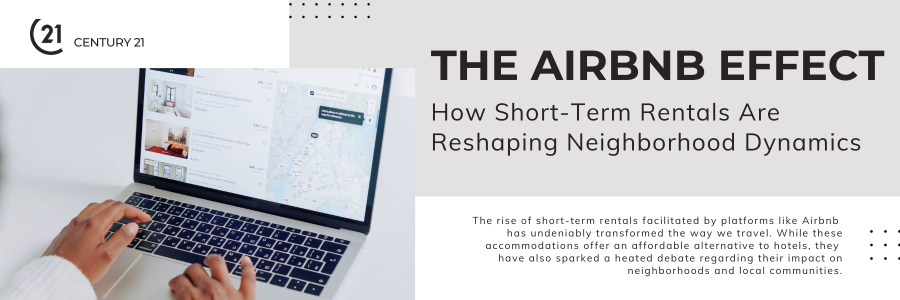The rise of short-term rentals facilitated by platforms like Airbnb has undeniably transformed the way we travel. While these accommodations offer an affordable alternative to hotels, they have also sparked a heated debate regarding their impact on neighborhoods and local communities. This blog seeks to delve into the multifaceted effects of the Airbnb phenomenon, examining both the social and economic implications these temporary lodgings bring to local communities.
Social Impact:
Community Integration vs. Disruption:
Short-term rentals can either enhance or disrupt community cohesion. On the other hand, Airbnb experiences and host recommendations can introduce travelers to local culture, fostering a sense of connection. On the other hand, frequent turnover of guests may lead to a transient environment, eroding the familiarity and trust among long-term residents.
Housing Affordability:
As property owners shift towards short-term rentals to capitalize on the lucrative market, the availability of affordable long-term rental housing may decrease. This can lead to displacement and gentrification, pushing out long-time residents.
Noise and Safety Concerns:
The transient nature of short-term rentals can lead to fluctuating noise levels and safety concerns. Increased foot traffic and a lack of accountability may create discomfort for permanent residents, raising questions about the balance between tourism and the local community’s needs.
Strain on Local Services:
A sudden influx of tourists can strain local services such as public transportation, waste management, and emergency services. Communities may find it challenging to accommodate the needs of both residents and visitors, leading to tensions and concerns about over-tourism.
Economic Impact:
Income Generation for Hosts:
One of the most significant economic benefits of short-term rentals is the income generated for hosts. Homeowners can supplement their income by renting out spare rooms or entire properties, contributing to their financial well-being.
Local Business:
Short-term rentals can impact local businesses in both positive and negative ways. On the positive side, increased tourism can lead to more customers for local restaurants, shops, and attractions. However, the influx of short-term rentals may also divert spending away from traditional hotels, affecting the hospitality industry.
Housing Market:
The demand for short-term rentals can drive up housing prices, making it challenging for residents to afford homes in popular tourist destinations. This phenomenon, known as the “Airbnb effect,” has been observed in various cities, leading to concerns about housing affordability and availability.
Job Creation:
The short-term rental market has created opportunities for individuals to earn income by renting out their properties. On the flip side, it has also led to debates about the gig economy and its impact on job stability and workers’ rights.
Regulatory Responses:
Zoning and Regulation Challenges:
The rapid growth of the short-term rental market has posed challenges for local governments in terms of zoning and regulation. Striking a balance between economic opportunities and maintaining the character of residential neighborhoods is a delicate task.
Community Engagement:
Inclusive community engagement is crucial for finding solutions that benefit both residents and the short-term rental market. Local authorities, residents, and property owners should work together to develop regulations that address the unique challenges of each community.
Technological Solutions:
Technology can play a role in mitigating the negative impacts of short-term rentals. Platforms like Airbnb can implement features that encourage responsible hosting, such as limiting the number of properties an individual can list and providing tools for reporting issues.
The Airbnb effect on neighborhood dynamics is a complex interplay of economic opportunities and social challenges. Striking the right balance requires thoughtful regulation, community engagement, and technological innovation. As the short-term rental market continues to evolve, it is essential to consider the long-term effects on neighborhoods and local communities to ensure a sustainable and inclusive future for all.


 Facebook
Facebook
 X
X
 Pinterest
Pinterest
 Copy Link
Copy Link


